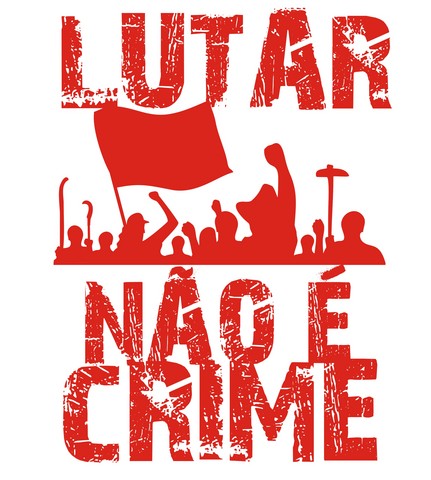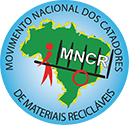Sobre as mobilizações pelo Brasil

A luta por transporte público de qualidade e pela redução de tarifas em todo o Brasil não começou hoje. Em 2005 esse movimento foi batizado como Movimento Passe Livre (MPL) durante o Fórum Social Mundial “
que luta por um
transporte público de verdade
, gratuito para o conjunto da população
”, um movimento de esquerda que tem princípios bem parecidos com os do Movimento Nacional dos Catadores de Materiais Recicláveis , “autônomo, apartidário, horizontal e independente
”. Ao longo dos anos as ações do MPL vêm criticando o modelo de transporte público nas cidades que exclui grande parte da população pelos preços altos.Hoje assistimos grandes manifestações realizadas fruto da organização dessa juventude que vem conquistando a redução da tarifa no transporte em diversas cidades do país. Milhares de pessoas têm ganhado as ruas em solidariedade aos militantes atingidos por atos de violência policial e prisões arbitrarias, além de serem privados muitas vezes de seu direitos de livre organização e livre manifestação. A participação popular tomou dimensões gigantescas após a violência policial atingir os profissionais de imprensa e transeuntes comuns.
Em apenas um dia 500 mil pessoas saíram às ruas em várias cidades brasileiras agregando outras pautas de reivindicações e aflorando a indignação da população sobre outros temas, como é o caso dos investimentos do Governo para os grandes eventos esportivos, expulsão de populações pobres e falta de investimentos em áreas básicas como saúde e educação, além do combates a corrupção e a retirada de poder de investigação do Ministério Público, a chamada PEC37.
Essas são reivindicações legitimas e necessárias para melhorar o país, no entanto, uma parte da população que tem saído nas ruas não tem feita a discussão política necessária sobre esses temas, tornando a reivindicações muito vagas e sem objetivos concretos, como “contra a corrupção”, “contra a copa”, “contra o Governo”, “contra os partidos”, “contra tudo”, etc. Ao se desviar de objetivos concretos e movidas pelo entusiasmo das mobilizações as pessoas têm se tornado alvos fáceis para os manipuladores.
A elite brasileira, com o apoio da grande imprensa igualmente elitista, tenta usar as manifestações populares em favor de seus interesses, incluem questões que não são interesse da maioria, além de políticas que vão contra a necessidade dos movimentos populares. Alguns grupos de preconceituosos estão indo para as manifestações e levantado reivindicações autoritárias. Esses grupos são formados por membros da classe rica e classe média e defendem abertamente ideias racistas e preconceituosas contra negros, mulheres, gays, nordestinos e estrangeiros. Atacaram violentamente os militantes de esquerda de partidos políticas e de movimentos sociais e impedido o livre direitos de manifestação desses que sempre estiveram acordados e lutando nas ruas.
O Movimento Nacional de Catadores de Materiais Recicláveis esteve desde sempre nas ruas lutando por cidades mais justas e verdadeiramente sustentáveis. Somos solidários a luta por um transporte público de qualidade e acessível a todos e todas. Lutamos para garantir o direito a cidade e permanecer nas ruas de maneira digna, contra a expulsão da população pobre. Nos somamos as mobilizações e causas concretas e bem planejadas e no debate pela construção de um poder popular.
Somos lutados do povo e não vamos permitir que a direita se aproprie das mobilizações populares.
Viva nossa luta!
Movimento Nacional dos Catadores de Materiais Recicláveis - MNCR
MNCR’s stance on the protests in Brazil
The fight for quality public transportation and fare reductions across Brazil didn’t start today. In 2005, during the World Social Forum, this movement was baptized as the Free Pass Movement (Movimento Passe Livre – MPL). Its aim has been to fight for a “truly public transportation system, one that is free for the entire population”. It is a leftist movement with similar principles as the MNCR — that is, it’s “autonomous, non-partisan, horizontal, and independent”. Over the years, MPL’s actions have continued to criticize the model of public transportation in Brazilian cities that excludes a huge portion of the population because of its expensive fares.
Today we see sweeping manifestations happening as a result of the organizing efforts of these youth, who’ve now conquered the reduction of the bus fares in many cities across the country. Millions of people have taken back the streets in solidarity with the activists who have been victims of police violence and sent to prison, as well stripped of the right to organize and protest. Popular participation spiked after police violence affected members of the press and ordinary people passing by.
In only one day, half a million Brazilians took to the streets in several cities across the country, making their demands heard and demonstrating their indignation on a number of themes. Some of the themes include the government’s investment in major sporting events, the eviction of poor populations and lack of investment in health and education, as well as corruption. With PEC37 (which has now been defeated), the Public Ministry (federal district attorney’s office), an independent judicial body, would be stripped of its power to investigate (only federal police would could have the power to conducted criminal investigations).
These are legitimate and necessary demands to improve the country, however, a portion of the population that has taken to the streets does not have the necessary political background to engage in these topics. The result has been very vague demands without concrete objectives, such as “against corruption”, “against the World Cup”, “against the government”, “against political parties”, “against everything”, etc. When people avoid concrete objectives and are simply moved by the enthusiasm of the protests, they become easy targets for manipulation.
The Brazilian elite, with the support of the equally elitist media giants, tries to use popular protests to support their its interests. It introduces themes that are not in the interest of the majority, aside from policies that will go against the demands of the popular movements. A few conservative and prejudiced groups have been attending the protests and touting authoritarian demands. These groups are formed by members of the wealthy and middle classes and openly support racist ideas and attitudes towards Black people, women, gays, people from northeastern Brazil, and foreigners. They violently attacked activists belonging to leftist political parties and social movements, hampering the right to protest of those who have historically taken to the streets.
The MNCR has always struggled in the streets for more just and sustainable cities. We are in solidarity with the struggle for quality and accessible public transportation. We fight to guarantee our rights to the city and to be able to use the streets with dignity, and we fight against the eviction of the poor. We support popular protests, concrete and well-organized causes for the construction of popular power.
We are of the people and we won’t let the right (conservatives) appropriate our popular protests.
Long live our struggle!
Movimento Nacional dos Catadores de Materiais Recicláveis – MNCR
(translated to English for globalrec.org)
